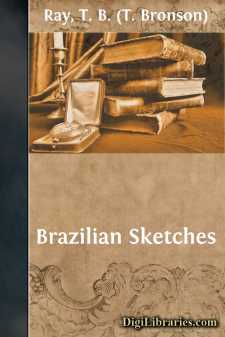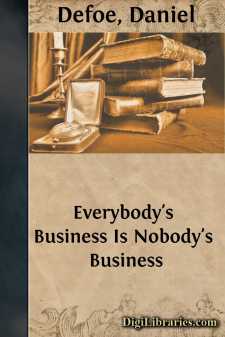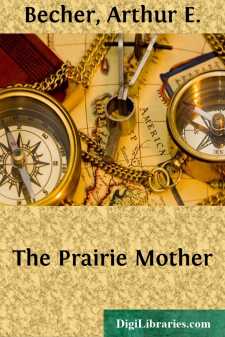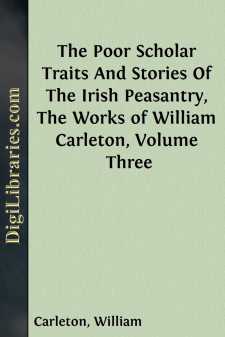Categories
- Antiques & Collectibles 13
- Architecture 36
- Art 48
- Bibles 22
- Biography & Autobiography 813
- Body, Mind & Spirit 142
- Business & Economics 28
- Children's Books 17
- Children's Fiction 14
- Computers 4
- Cooking 94
- Crafts & Hobbies 4
- Drama 346
- Education 46
- Family & Relationships 57
- Fiction 11829
- Games 19
- Gardening 17
- Health & Fitness 34
- History 1377
- House & Home 1
- Humor 147
- Juvenile Fiction 1873
- Juvenile Nonfiction 202
- Language Arts & Disciplines 88
- Law 16
- Literary Collections 686
- Literary Criticism 179
- Mathematics 13
- Medical 41
- Music 40
- Nature 179
- Non-Classifiable 1768
- Performing Arts 7
- Periodicals 1453
- Philosophy 64
- Photography 2
- Poetry 896
- Political Science 203
- Psychology 42
- Reference 154
- Religion 513
- Science 126
- Self-Help 84
- Social Science 81
- Sports & Recreation 34
- Study Aids 3
- Technology & Engineering 59
- Transportation 23
- Travel 463
- True Crime 29
The German Classics of the Nineteenth and Twentieth Centuries, Volume 04 Masterpieces of German Literature Translated into English. in Twenty Volumes
by: Kuno Francke
Categories:
Description:
Excerpt
THE LIFE OF JEAN PAUL
By BENJAMIN W. WELLS, Ph.D.
Author of Modern German Literature.
"The Spring and I came into the world together," Jean Paul liked to tell his friends when in later days of comfort and fame he looked back on his early years. He was, in fact, born on the first day (March 21) and at almost the first hour of the Spring of 1763 at Wunsiedel in the Fichtelgebirge, the very heart of Germany. The boy was christened Johann Paul Friedrich Richter. His parents called him Fritz. It was not till 1793 that, with a thought of Jean Jacques Rousseau, he called himself Jean Paul.
Place and time are alike significant in his birth. Wunsiedel was a typical German hill village; the ancestry, as far back as we can trace it, was typically German, as untouched as Wunsiedel itself, by any breath of cosmopolitan life. It meant much that the child who was in later life to interpret most intimately the spirit of the German people through the days of the French Revolution, of the Napoleonic tyranny and of the War of Liberation, who was to be a bond between the old literature and the new, beside, yet independent of, the men of Weimar, should have such heredity and such environment. Richter's grandfather had held worthily minor offices in the church, his father had followed in his churchly steps with especial leaning to music; his maternal grandfather was a well-to-do clothmaker in the near-by town of Hof, his mother a long-suffering housewife. It was well that Fritz brought sunshine with him into the world; for his temperament was his sole patrimony and for many years his chief dependence. He was the eldest of seven children. None, save he, passed unscathed through the privations and trials of the growing household with its accumulating burdens of debt. For Fritz these trials meant but the tempering of his wit, the mellowing of his humor, the deepening of his sympathies.
When Fritz was two years old the family moved to Joditz, another village of the Fichtelgebirge. Of his boyhood here Jean Paul in his last years set down some mellowed recollections. He tells how his father, still in his dressing gown, used to take him and his brother Adam across the Saale to dig potatoes and gather nuts, alternating in the labor and the play; how his thrifty mother would send him with the provision bag to her own mother's at Hof, who would give him goodies that he would share with some little friend. He tells, too, of his rapture at his first A B C book and its gilded cover, and of his eagerness at school, until his too-anxious father took him from contact with the rough peasant boys and tried to educate him himself, an experience not without value, at least as a warning, to the future author of Levana. But if the Richters were proud, they were very poor. The boys used to count it a privilege to carry the father's coffee-cup to him of a Sunday morning, as he sat by the window meditating his sermon, for then they could carry it back again "and pick the unmelted remains of sugar-candy from the bottom of it." Simple pleasures surely, but, as Carlyle says, "there was a bold, deep, joyful spirit looking through those young eyes, and to such a spirit the world has nothing poor, but all is rich and full of loveliness and wonder."
Every book that the boy Fritz could anywise come at was, he tells us, "a fresh green spring-place," where "rootlets, thirsty for knowledge pressed and twisted in every direction to seize and absorb." Very characteristic of the later Jean Paul is one incident of his childhood which, he says, made him doubt whether he had not been born rather for philosophy than for imaginative writing....


















